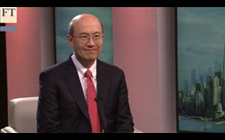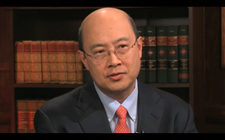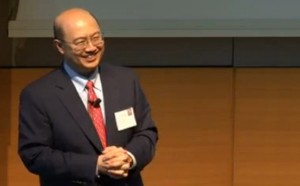"Americans pay some of the world's highest rates for health care coverage and drug therapies. Although these costs hurt consumers, drug companies point out that the U.S. system allows them to bring new therapies to market faster and sometimes exclusively for domestic patients. Still, tabs like $84,000 for a curative hepatitis C treatment price most people out, even those with the best insurance.
"Andrew Lo, a finance professor at the MIT Sloan School of Management and director of its Laboratory for Financial Engineering, has proposed a fix of sorts. He and fellow researcher David Weinstock, a physician at the Boston-based Dana-Farber Cancer Institute, recently published a paper in the journal of Science Translational Medicine that shows how capital markets could finance these costly treatments in the same way that consumers bankroll other large purchases, like mortgages."


